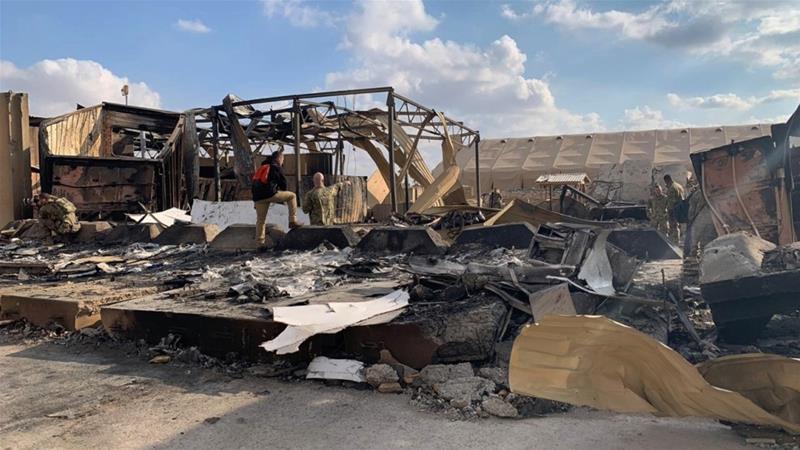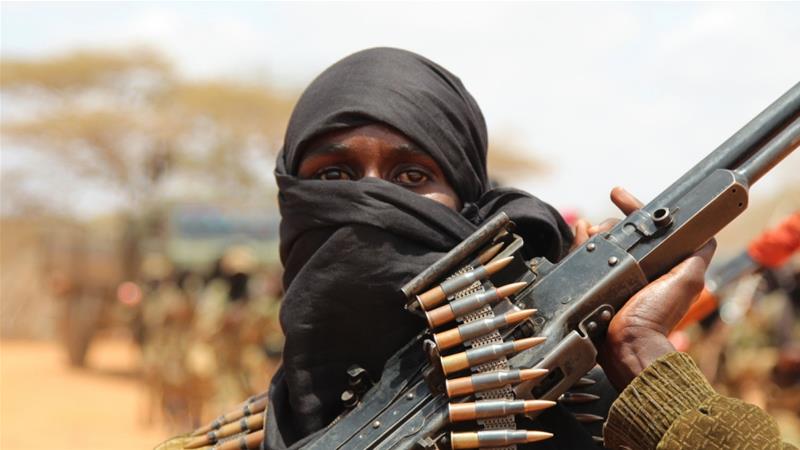![US-led forces pull out of third Iraqi base this month US soldiers gather at the Ain al-Assad airbase in Anbar, Iraq in January [File: Qassim Abdul-Zahra/AP]](https://www.aljazeera.com/mritems/imagecache/mbdxxlarge/mritems/Images/2020/3/12/f579942e90384950bb584329d0448d8b_18.jpg)
The United States-led coalition forces in Iraq withdrew on Sunday from a military base in the country’s north that nearly launched Washington into an open war with neighbouring Iran.
The K1 airbase is the third site coalition forces have left this month, in line with the US plans to consolidate its troops in two locations in Iraq.
More:
A rocket attack on the base in late December had killed an American contractor and led to a series of tit-for-tat attacks between the US and Iran-backed Iraqi militia groups. The attacks culminated in the US-directed killing of top Iranian General Qassem Soleimani and a senior Iraqi militia leader, Abu Mahdi al-Muhandis.
Coalition forces handed over the K1 base in the northern Iraqi province of Kirkuk to Iraq’s military, according to a coalition statement. At least $1.1m of equipment was transferred to the Iraqis as 300 coalition personnel departed.
|
|
K1 has hosted coalition forces since 2017 to launch operations against the ISIL (ISIS) armed group in nearby mountainous areas. Areas south of Kirkuk, and north of neighbouring provinces of Diyala, Salahuddin and Nineveh remain hotbeds of ISIL activities.
The stretch of the territory is also disputed between the federal Iraqi government and the autonomous Kurdish region, which has created security gaps benefitting ISIL fighters. The coalition’s presence had at times been a mediating force between the two competing authorities.
‘Pretty constrained’
A senior coalition official earlier this month claimed ISIL forces were not as able to exploit the “security gap” between Iraqi and Kurdish forces as they did in the past.
“That doesn’t necessarily mean that Daesh is free to operate in the way that they wish,” said the official, using the Arabic acronym for the group. “They’re still pretty constrained.”
The coalition official was speaking on condition of anonymity in line with regulations.
The US-led forces have already withdrawn this month from the Qayyarah base in Nineveh province followed by the Qaim base near the border with Syria. All were in line with plans to pull out from bases across Iraq and consolidate coalition forces in Baghdad and at the Ain al-Assad airbase in the country’s western desert.
The plan has been in the works since late last year, the senior coalition military official said, and accelerated when Iraqi forces proved they were capable of facing the ISIL threat with limited coalition assistance.
Coalition officials said they would still assist Iraqi forces with air support and surveillance, but significantly cut back on training and ground operations, as the limited withdrawal continues.
Until last month, there were some 7,500 coalition troops based in Iraq, including 5,000 US forces.
SOURCE: AP NEWS AGENCY
aljazeera.com



![N Korea fires more missiles than ever amid coronavirus pandemic A suspected missile is fired in this image released by North Korea's Korean Central News Agency on March 22, 2020 [KCNA/via Reuters]](https://www.aljazeera.com/mritems/imagecache/mbdxxlarge/mritems/Images/2020/3/29/83c36a46b29a4ff4bcb84cf994d705e5_18.jpg)
![France and allies establish new task force in Sahel Soldiers from Burkina Faso patrol along a Gorgadji road in the Sahel area of Burkina Faso [File: Luc Gnago/Reuters]](https://www.aljazeera.com/mritems/imagecache/mbdxxlarge/mritems/Images/2020/3/28/076c5c426c7543469d0ec2235ca6eddc_18.jpg)
